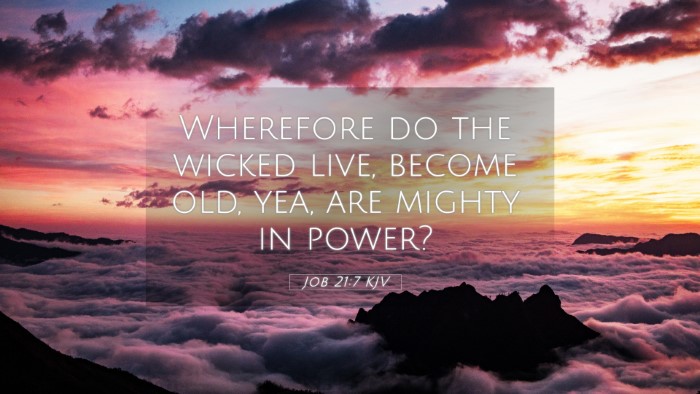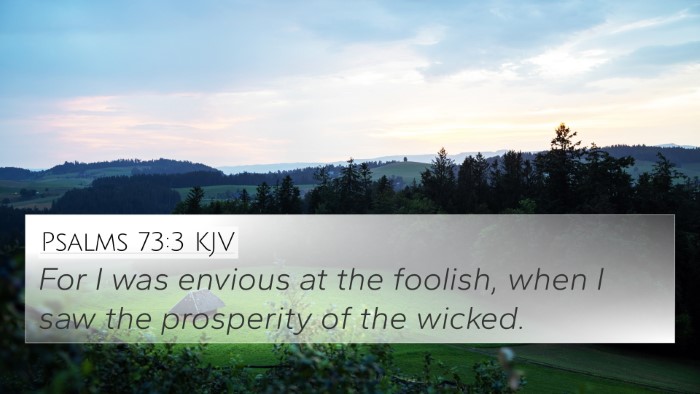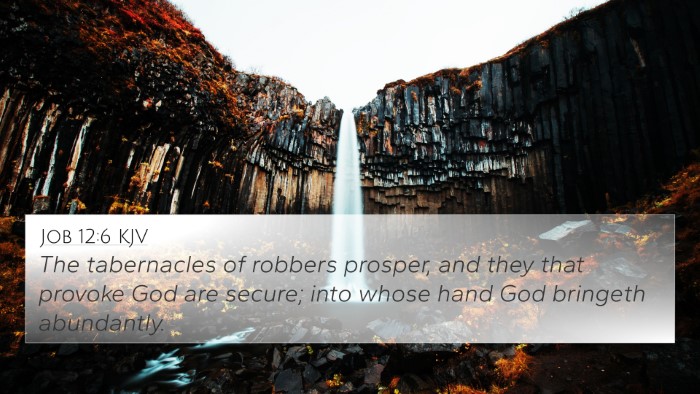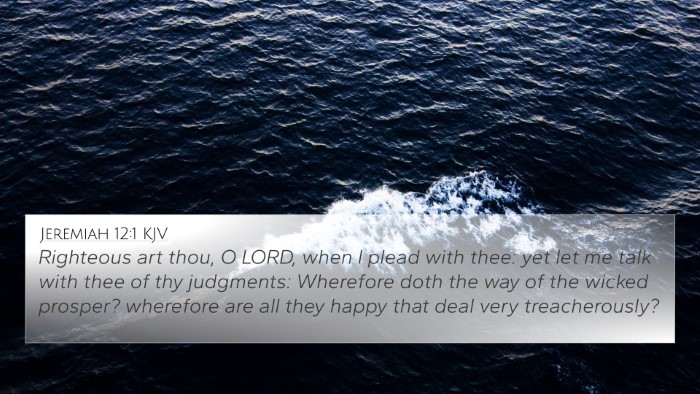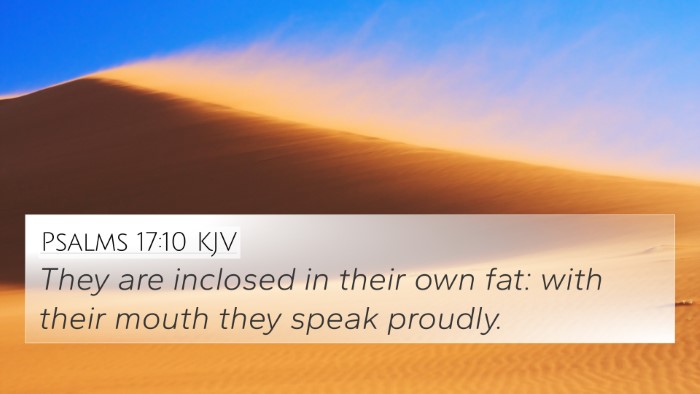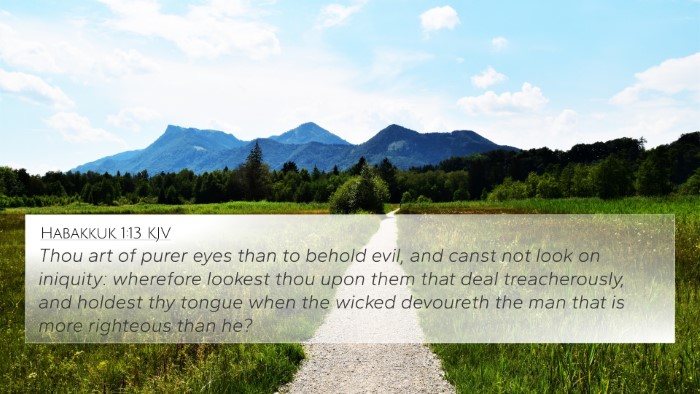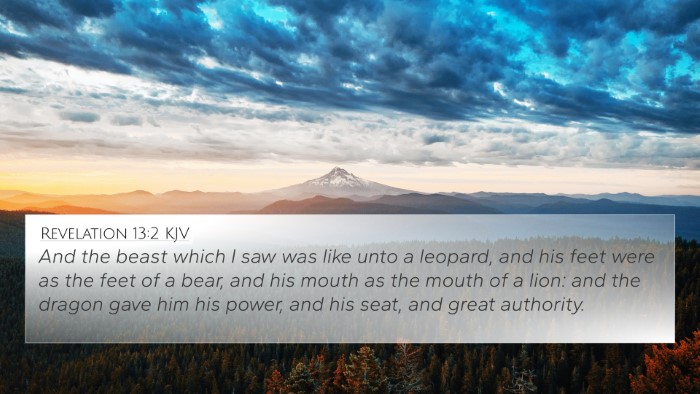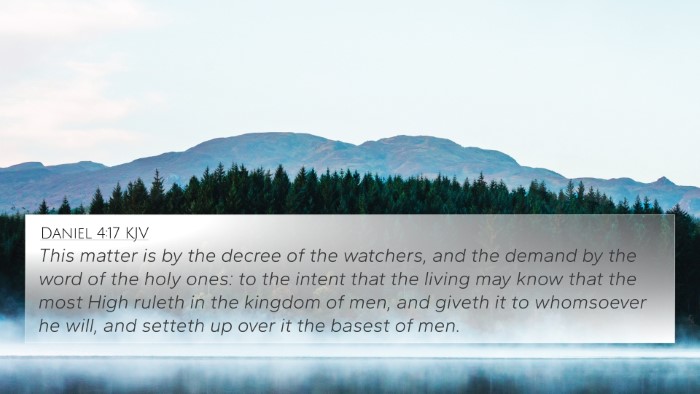Understanding Job 21:7
Job 21:7 poses a challenging question by expressing Job's confusion regarding the apparent prosperity of the wicked and the suffering of the righteous. In this verse, Job questions his friends and others who claim that wrongdoing leads to immediate consequences, arguing instead that he observes the contrary in the world around him.
Verse Text
"Wherefore do the wicked live, become old, yea, are mighty in power?" - Job 21:7
Commentary Insights
In the commentaries of Matthew Henry, Albert Barnes, and Adam Clarke, several key themes arise, helping to deepen our understanding of this verse.
-
The Question of the Wicked’s Prosperity:
Matthew Henry indicates that Job is lamenting the fact that the wicked seem to flourish without consequence, while the righteous suffer. This apparent disparity raises crucial theological questions about justice, divine retribution, and the nature of God’s governance over the earth.
-
The Mystery of Human Suffering:
Albert Barnes emphasizes that Job's inquiry reflects a profound mystery in human existence, where righteousness does not always correlate with earthly success or comfort. Barnes highlights Job's challenge to the traditional belief that suffering is solely a punishment for sin.
-
God’s Sovereignty:
Adam Clarke points to the sovereignty of God over life and death, where the wicked and the righteous live out their days according to God's purposes, which may not always be evident. Clarke urges readers to trust in God's ultimate justice, even when the present circumstances seem unjust.
-
Job’s Response to Accusations:
Henry notes that Job’s questioning is not only a challenge against his friends’ assertions but also reflects a broader struggle between understanding God’s ways and human fallibility. His boldness in asking these questions signifies his search for truth amidst suffering.
-
The Role of Observation:
According to Barnes, Job bases his question on direct observation of life around him, showing that experiential evidence sometimes contradicts popular theological doctrine. This appeal to empirical reality invites readers to analyze their beliefs critically.
Bible Verse Cross-References
Job 21:7 is closely related to several other scriptures that echo its themes. Here are some significant cross-references:
- Psalms 73:3-12 - The Psalmist expresses similar doubts about the prosperity of the wicked.
- Proverbs 24:19-20 - Offers insights on the futility of envying wrongdoers.
- Psalm 37:1-2 - Encourages not to fret because of evildoers.
- Ecclesiastes 7:15 - Reflects on the righteousness of the wise versus the wicked.
- Jeremiah 12:1-2 - Here, the prophet laments God’s justice regarding the wicked.
- Matthew 5:45 - Highlights God's impartiality, where the sun shines on both the just and unjust.
- Revelation 20:12 - Conveys the ultimate judgment, providing hope for the righteous.
Connections Between Bible Verses
The connections between these verses illustrate the enduring struggle of understanding divine justice and the moral order of the universe. These scriptures collectively foster a meaningful dialogue across the Bible.
Additional Insights
This verse and its associated commentaries remind believers of the complexity of faith. The interaction between Job's experience and the insights offered by the various commentators serves to prepare the ground for deeper theological reflection and personal faith wrestling.
Thematic Bible Verse Connections
In examining Job 21:7, it is beneficial to explore thematic connections:
- Justice and Injustice: Analyzing how justice is portrayed across the scriptures offers a profound look at God's nature.
- Human Suffering: Many characters in the Bible wrestle with suffering, from Job to Christ.
- Divine Sovereignty: Connecting God's authority to the existence of evil leads to deep theological inquiry.
Cross-Referencing Bible Study Methods
To effectively study cross-references related to Job 21:7, consider utilizing:
- Bible Concordance: Look up themes and subjects that connect with Job’s questions.
- Cross-Reference Guides: Use tools specifically designed to show related verses.
- Annotated Bibles: Many Bibles offer notes that link similar scriptures directly on the page.
Conclusion
Job 21:7 serves as a profound reminder of the complexity and sometimes perplexing nature of faith, including the struggle to comprehend the apparent discrepancies between the lives of the wicked and the righteous. Through cross-referencing related scriptures, readers can find solace and challenge in these themes, fostering a richer understanding of biblical teachings and their relevance to contemporary life.

